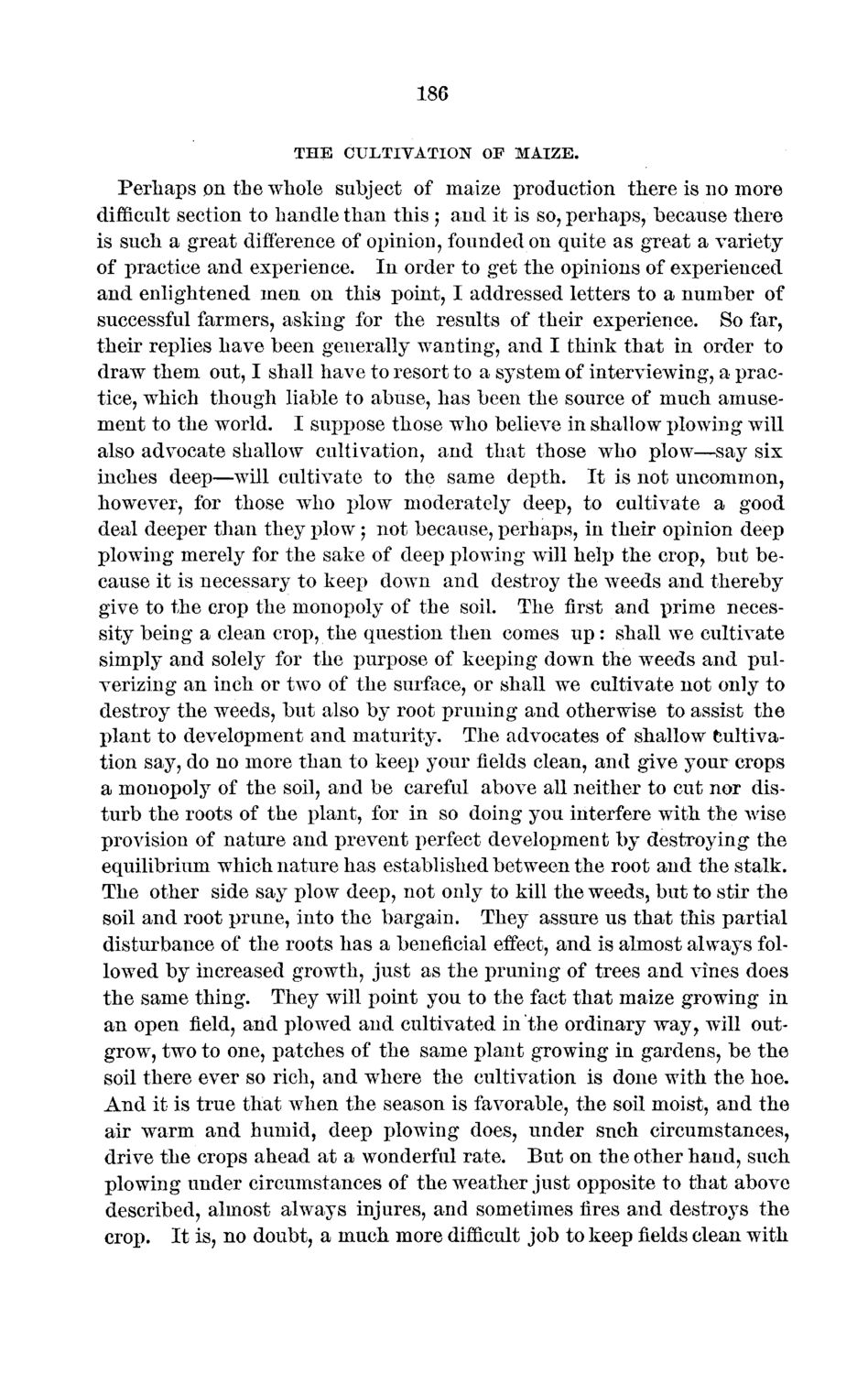| |
| |
Caption: Board of Trustees Minutes - 1872
This is a reduced-resolution page image for fast online browsing.

EXTRACTED TEXT FROM PAGE:
186 THE CULTIVATION OF MAIZE. Perhaps on the whole subject of maize production there is no more difficult section to handle than this ; and it is so, perhaps, because there is such a great difference of opinion, founded on quite as great a variety of practice and experience. In order to get the opinions of experienced and enlightened men on this point, I addressed letters to a number of successful farmers, asking for the results of their experience. So far, their replies have been generally wanting, and I think that in order to draw them out, I shall have to resort to a system of interviewing, a practice, which though liable to abuse, has been the source of much amusement to the world. I suppose those who believe in shallow plowing will also advocate shallow cultivation, and that those who plow—say six inches deep—will cultivate to the same depth. It is not uncommon, however, for those who plow moderately deep, to cultivate a good deal deeper than they plow ; not because, perhaps, in their opinion deep plowing merely for the sake of deep plowing will help the crop, but because it is necessary to keep down and destroy the weeds and thereby give to the crop the monopoly of the soil. The first and prime necessity being a clean crop, the question then comes u p : shall we cultivate simply and solely for the purpose of keeping down the weeds and pulverizing an inch or two of the surface, or shall we cultivate not only to destroy the weeds, but also by root pruning and otherwise to assist the plant to development and maturity. The advocates of shallow cultivation say, do no more than to keep your fields clean, and give your crops a monopoly of the soil, and be careful above all neither to cut nor disturb the roots of the plant, for in so doing you interfere with the wise provision of nature and prevent perfect development by destroying the equilibrium which nature has established between the root and the stalk. The other side say plow deep, not only to kill the weeds, but to stir the soil and root prune, into the bargain. They assure us that this partial disturbance of the roots has a beneficial effect, and is almost always followed by increased growth, just as the pruning of trees and vines does the same thing. They will point you to the fact that maize growing in an open field, and plowed and cultivated in the ordinary way, will outgrow, two to one, patches of the same plant growing in gardens, be the soil there ever so rich, and wrhere the cultivation is done with the hoe. And it is true that when the season is favorable, the soil moist, and the air warm and humid, deep plowing does, under such circumstances, drive the crops ahead at a wonderful rate. But on the other hand, such plowing under circumstances of the weather just opposite to that above described, almost always injures, and sometimes fires and destroys the crop. It is, no doubt, a much more difficidt job to keep fields clean with
| |